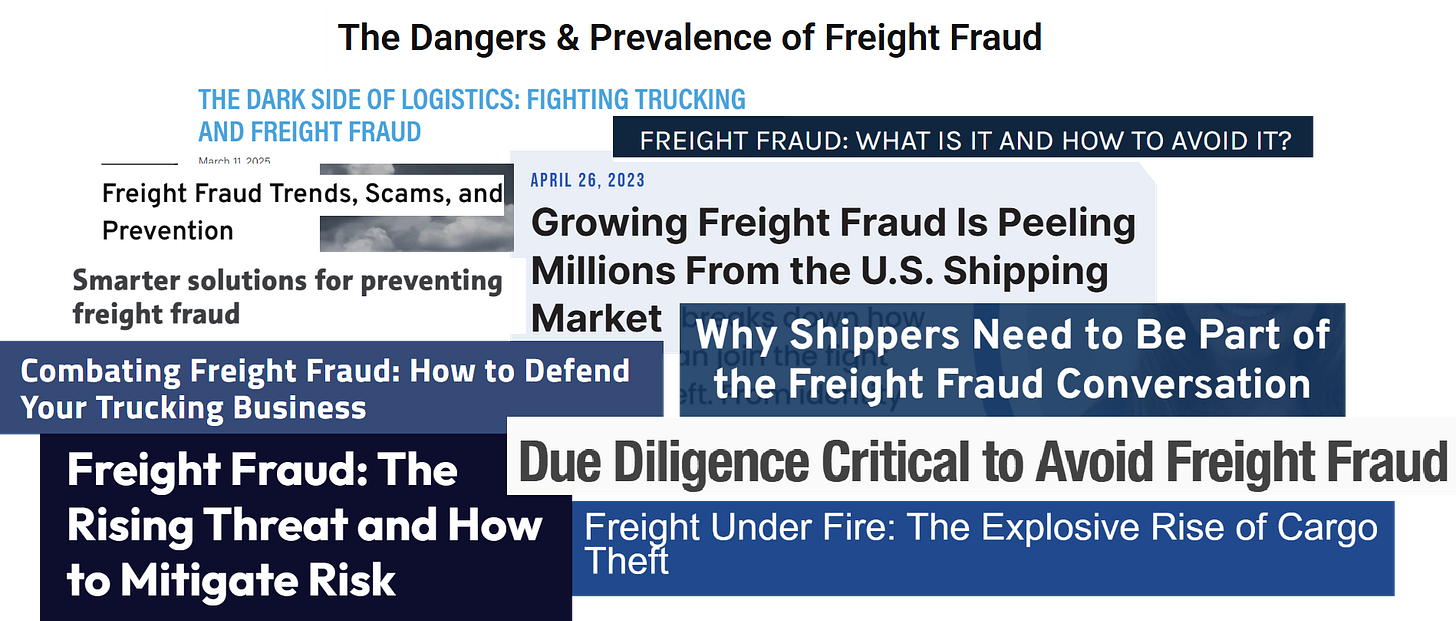When everything is freight fraud, nothing is.
Language shapes how we perceive problems and how seriously we approach them.
When a word or phrase is used too often, too broadly, or too loosely, it begins to lose its meaning. Linguists call this semantic bleaching. It’s what happens when words like “literally” come to mean “figuratively,” or when “love” is used when someone hands you a gift, instead of referring to your husband, wife, or kids.
In the transportation industry, the term freight fraud is undergoing its own version of semantic bleaching.
I’ve spent the last hour reading recent articles that reference “freight fraud.” The more I read, the more frustrated I became. Not because the problem isn’t real, it very much is. We all know it is real. But we talk about it in ways that are vague, reductive, and ultimately unhelpful. The phrase has become a catch-all and a buzzword used in marketing campaigns.
Yes, you say freight fraud, but I don’t think it means what you think it means…
Freight fraud is used to describe everything. From double-brokering to identity theft to fake pickups, scam emails, AI-generated documents, fake or no payment, forged certificates of insurance, Solo Sergey not a true team—the list goes on.
And when everything is freight fraud, nothing is.
Without explicitly naming the fraudulent activity or understanding the underlying mechanisms, we dull the urgency and obscure the root causes.
The same goes for our advice. We tell shippers and brokers to “work with reputable partners” or “vet relationships carefully.” Or “automate your carrier vetting.” *Heavy emphasis on the air-quotes on that one.
And that’s it. That’s our advice. As if that protects against a binder full of USDOTs or hiring very unqualified drivers. If that advice were enough, we wouldn’t be in this mess.
Most of us in the industry know these problems exist. We joke about them. It’s how we cope with the reality that these problems are persistent and, in some cases, growing.
I’m not writing this article to offer any solutions. I just want us to clarify what we’re actually talking about. If we want to solve “freight fraud,” we have to stop calling everything freight fraud.
We need to name the specific activity.
Double-brokering. Identity theft. Deceptive emails. Cyber attack. Carrier impersonation. Insurance forgery. Cargo theft. Payment fraud. Stolen credentials. AI-generated documents. Fake CDLs. 72 USDOTs, one apartment complex.
Those aren’t vague problems. They’re distinct, traceable, and addressable. But only if we call them what they are.
Precision in language leads to precision in action.
Let’s start there.
…
Oh. One more thing.
You cannot claim that you have a “proactive approach.” Stop writing it in your articles. Stop using it as a marketing narrative. Everyone is reacting to the issues caused by an incredibly low barrier to entry and CDLs being handed out like Halloween candy.



